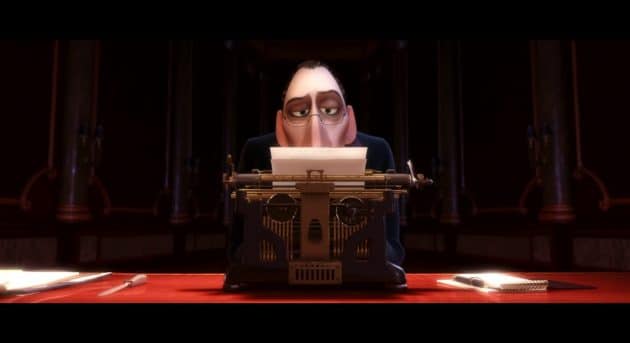Is there still a role for the theatre critic in a post COVID-19 world?
Theatre critics yield the incredible power to either make or break productions. The ‘art form’ of theatre criticism disseminates the act of assessing and contemplating both the strengths and blemishes of theatrical work. This notion forms the basic principle embodying criticism.
From this we can deduce that a critics motive is to analyse the object by looking deep into the performance and in short dissect the directors choices, the actor’s work, and the designers calculated use of sound and lighting to enhance a scene in time and space. In many ways theatre criticism has been the cornerstone of the arts community and their analysis in describing a performance has formed the essence of their role throughout time. But what about now?

Producers don’t employ publicists to invite critics to their shows, for free, with the intention of having their work picked apart and publicly humiliated. They invite critics in the hope of extra publicity in order to generate positive hype and drive much needed ticket sales.
With the coronavirus crisis pushing the industry to the brink of collapse and social distancing guidelines enforcing longer re-open times, compared to any other business, industry experts estimate that by Christmas a large percentage of theatres and producing companies around the world will close permanently.
The fact is, even before this once in a century pandemic crippled the industry, the fall of print media leading to the rise of the digital media revolution had already put theatre criticism into significant crisis. Furthermore social media has created a new landscape of critique platforms which highlights the fact that now anyone and everyone is a critic in this modern world. From Presidents to the social elite and every insta-famous influencer in between, the mob mentality is now more powerful and omnipresent than ever before. However some may argue that education is the defining disparity between your amateur social media critic and a professional theatre critic.
Whilst there is no specific degree that defines a pre determined pathway leading to the role of ‘theatre critic’, many have an educated background in journalism and communications or English literature and dramaturgy. These programs educate the aspiring critic’s on topics including script analysis, dramatic theory and the interpretation of dramatic work and literature. Courses endeavour to refine the student’s analytical and writing skills and to hone their critical thinking. After completing a bachelor’s degree, an aspiring critic may then go on to further develop their skills through a master’s degree. On the contrary many a theatre critic have no formal training whatsoever and only through their love of the arts and familiarity with current trends they consider themselves ‘professional critics’ who’s razor sharp tongues can take swipe at any performance their opinion’s deem appropriate. To complicate matters, a theatre critics opinion should always be objective and not be swayed by ulterior motives. In an industry where the pathways for actors and industry insiders can naturally evolve to becoming theatre critics, are there ever instances where critics may have been turned down for auditions on productions they are critiquing? Or are they associated favourably with the lead or supporting cast in a production? I suspect these instances occur far more frequently than people realise.
In a recently published article ‘The Basics Of Theatre Criticism’ the author presents their view on the role of a professional theatre critic in four concise points. To provide publicity for the production. To trigger conversation about a piece of art with the theatregoing community. To provide press clips for the actors and designers as a means to ensure future employment. And lastly to give the audience a sense of the show, highlighting its strengths and weaknesses, which then allows attendees to make a more educated decision on how they will spend their money.
Now at a time when theatres and production companies are on the brink of financial ruin, will new productions really have a buffer for negative criticism? When critics have increasingly turned to star ratings to assess the overall quality of a show, they are essentially acting like a consumer guide applying the same criteria consumer product advocacy group Choice do when buying a tv or a washing machine. In an article posted by a professional theatre critic from The Guardian the author wrote
“I was struck by the fact that the most damaging reviews are invariably the funniest.”
In another article posted by a different publication the author wrote:
“Because of rising costs, there are far fewer downright commercial stinkeroos than there used to be: the bad musicals, comedies and thrillers on which we all used to sharpen our claws have largely gone the way of the dodo. The internet, where people can exercise their talent to abuse under the cloak of anonymity, also siphons off a lot of intemperate anger. As critics get older – and I concede this may be a fault – they also tend to become less recklessly violent in their judgements. But, as an ageing hack myself, I still reserve the right occasionally to be rude: not out of malice or spite but out of the need to ensure that the second-rate is put firmly in its place. Which, after all, is what the job is partly about.”
Like a cat playing with a mouse, it thinks it is fun to tease and tantalise, but in the end the mouse will die and then what good will come from killing the mouse? Do you think this author considered that their negative criticism could kill a show? Probably not. Or are they just looking to get a name for themselves? In an industry that is currently beleaguered and so reliant on collaborative working, is there still room for negative feedback.
“In many ways, the work of a critic is easy. We risk very little, yet enjoy a position over those who offer up their work and themselves to our judgment. We thrive on negative criticism, which is fun to write and to read. But the bitter truth we critics must face, is that in the grand scheme of things, the average piece of junk is probably more meaningful than our criticism designating it so.” – Anton Ego – Ratatouille
This brings me back to my previously mentioned point on education. At a time of great uncertainty, theatre critics need to tread lightly to healthfully participate in the art of critiquing in useful and productive ways or else risk losing the object of their criticism all together.
At AussieTheatre.com our values are simple; we are here to champion the arts and those that produce entertainment within our communities. We accept that there is both good and bad in every venture but we would rather see creatives making an effort, than nothing at all.



